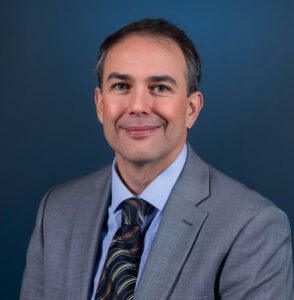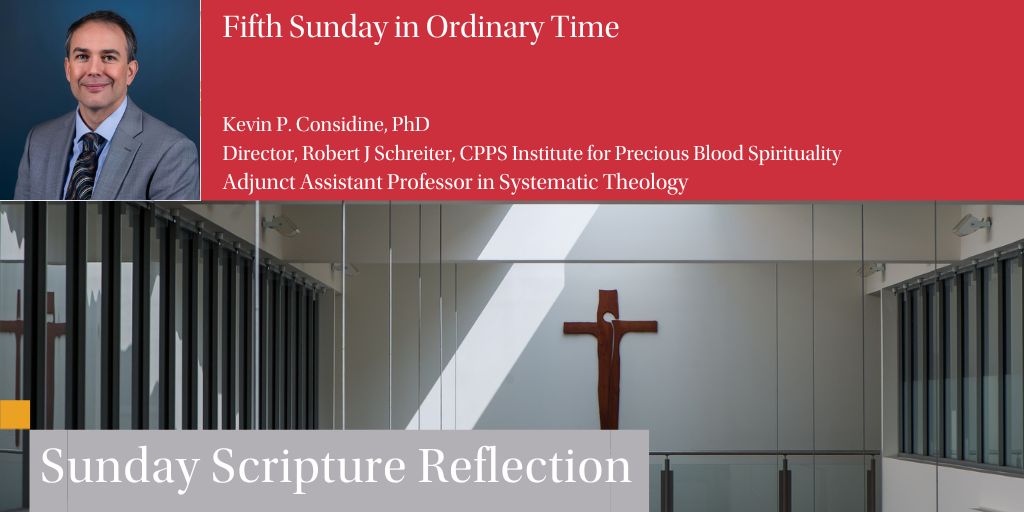
Readings:
Isaiah 6:1-2a, 3-8
Psalm 138:1-2, 2-3, 4-5, 7-8
1 Corinthians 15:1-11
Luke 5:1-11
My youngest son had a nightmare. He is eleven years old and it’s part of growing up. But, when I went to him at 4am, this time, it was different. His dream was very specific. Government agents from Immigration and Customs Enforcement (ICE) had opened the door and taken him away from us. He awoke upset and fearful.
To be clear, my family is an intercultural family that has the privilege of citizenship. On one level, he knows he is safe. But, on another level, insecurity and fear is gnawing at him. My wife’s family emigrated from South Korea to the U.S. when she was a child, and the stories of migration have shaped him. Many migrant students at his school have stopped showing up due to fear of ICE. More school fights are happening, and racial slurs are being slung about with more regularity.
We in the U.S., among many other places, are living through a social and political climate of fear and uncertainty, caused by government authorities whose policies and actions are guided neither by conscience nor morality. For better or worse, this brings us closer to the worlds in which this week’s readings were composed, proclaimed, and heard. And they point to the intimate nearness of God’s voice in such times, if only we learn how to overcome fear, listen closely, and respond with honesty and compassion.
The first reading describes Isaiah’s call to be God’s prophet to the people in a time of fear and uncertainty. King Uzziah had just died, the people were anxious, and the Israelites’ existence was precarious in this time of transition. Isaiah had a vision of God in which he experienced a vivid call to be God’s mouthpiece to the people.
The second reading is a passage from Paul’s First Letter to the Corinthians. Here Paul narrates his own call from God through Christ to preach the Gospel. Paul reminds others to remain faithful to their calling; to gather, preach, and minister as a beloved community in Christ’s name. And the excerpt from Luke’s Gospel testifies to Jesus’ calling of Simon, James, and John to be part of The Twelve. They are to be drawn close to Jesus to train in the work of the Kingdom and flow with God’s Spirit in all things.
To Isaiah, to Paul, to the Corinthians, and to the fledgling members of the Twelve, God asks the seeming impossible: to embody and to spread small moments of salvation in times of trouble. To preach repentance, forgiveness, and healing in times defined by shameless abuses of power, merciless actions towards the most vulnerable, and the persistence of the wounds caused by trauma and moral injury. They were called to be preachers and ministers of the God of Life and Love, Healing and Liberation, Peace and Prosperity, Redemption and Salvation; not only to their own people but to their enemies and to all others who would listen.
This is similar to the call embraced by St. John Chrysostom preaching God’s justice in the presence of the Byzantine Emperor Arcadius; by Antonio de Montesinos preaching justice and liberation in the face of the enslavers on the encomiendas; by St. Catherine of Siena cajoling Pope Gregory XI to be courageous during the Avignon exile; and, more recently, Episcopal Bishop Mariann Edgar Budde in her sermon calling upon the new presidential administration to show mercy on the most vulnerable.
In its own imperfect way, this also is the task that CTU tries to undertake for the Church of the 21st century: to form women and men who discern how God is still speaking to us in times of trouble. Even now. Even in the midst of nightmares. And how God is calling all persons of good will to be a witness to injustice, to protect vulnerable neighbors from abuse, and to work to build God’s beloved community here and now.
Will this prevent all future nightmares? Of course not. But it will bring us nearer to God’s voice and presence. It will provide hope when there is none. It will provide a source of solace, rest, and compassion in a context of growing cruelty and schadenfreude. It will provide a measure of solidarity, dignity, and God-given human decency for men, women, and children plagued by fear, terror, and uncertainty. It will breathe life into the imago dei carried by each and every one of us.
And that’s not nothing. That’s heeding God’s call and participating in God’s work.
Amen.
Kevin P. Considine, PhD
Director, Robert J Schreiter, CPPS Institute for Precious Blood Spirituality
Adjunct Assistant Professor in Systematic Theology
